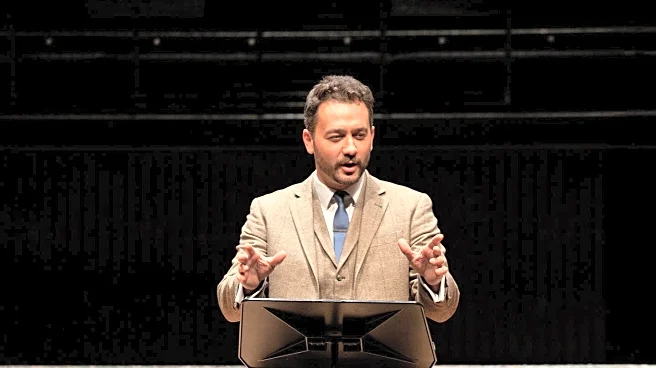What's Happening?
Attorneys for Illinois have requested the U.S. Supreme Court to deny President Trump's request to deploy National Guard troops to the Chicago area for immigration enforcement. This request follows a temporary restraining order issued by U.S. District
Judge April Perry, which the Trump administration is appealing. The state argues that the high court's involvement is premature as the district court's decision is still under appeal. The Trump administration claims that federal personnel and property are at risk due to ongoing protests, but Illinois contends that these protests are constitutionally protected and do not justify military intervention.
Why It's Important?
The case highlights the tension between federal and state authorities over immigration enforcement and the use of military force in domestic affairs. If the Supreme Court sides with the Trump administration, it could set a precedent for increased federal intervention in state matters, potentially impacting state sovereignty and civil liberties. Conversely, a decision favoring Illinois could reinforce state rights and limit federal military involvement in local issues. The outcome could influence future federal-state relations and the handling of protests and immigration enforcement across the U.S.
What's Next?
Judge Perry is scheduled to hold a hearing to decide whether to extend the temporary restraining order. The Supreme Court has yet to request further arguments or briefings, leaving the timeline for a decision uncertain. The case's progression will be closely watched by legal experts, state officials, and civil rights organizations, as it may influence future legal battles over federal authority and state rights.















